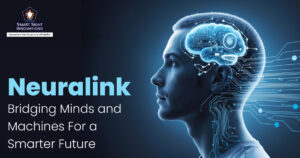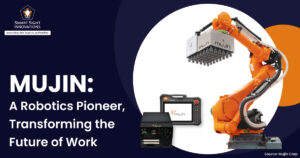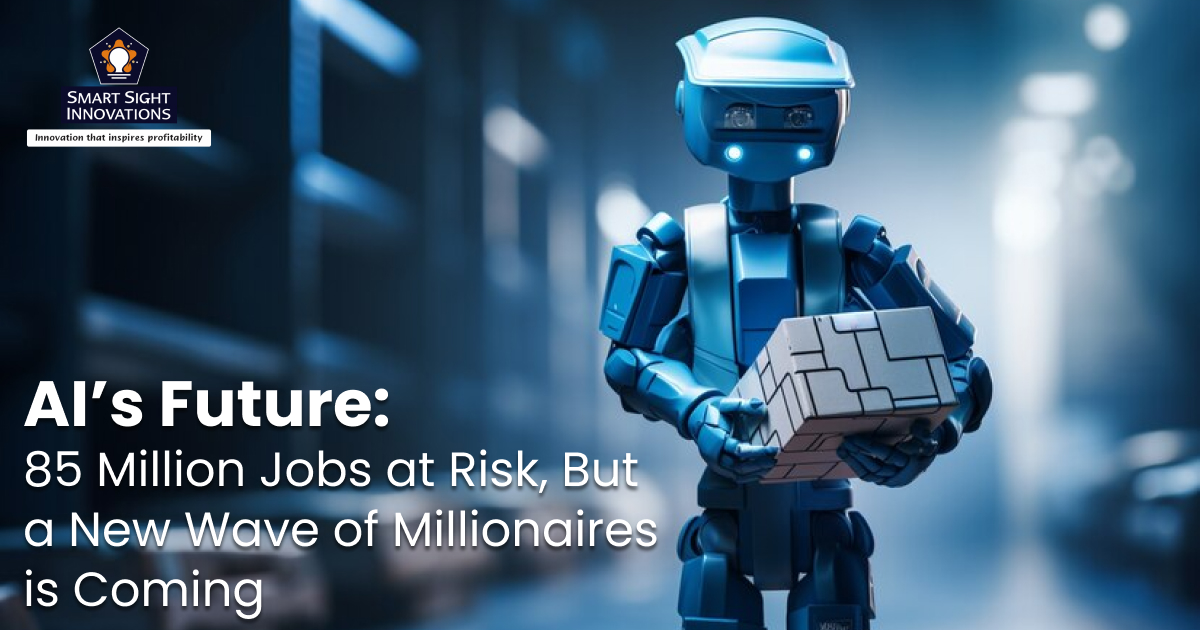
AI is not just a buzzword anymore, it’s rapidly reshaping every aspect of our lives. From self-driving cars to voice assistants, AI is transforming industries and workflows. However, the conversation around AI isn’t just about the exciting new technologies and possibilities. It’s also about the workforce and how millions of jobs are at risk due to automation.
According to a report by the World Economic Forum, AI and automation will displace 85 million jobs by 2025. These jobs, primarily in manual, repetitive tasks, are expected to be taken over by machines and algorithms capable of doing the work faster and more efficiently.
Yet, despite this alarming prediction, there is an equally compelling upside; the rise of AI is also expected to create vast wealth opportunities, potentially generating more millionaires than all other technologies combined. This paradox, job loss and wealth creation, is central to understanding how AI will reshape careers and economies.
How AI Is Shaping the Future Workforce
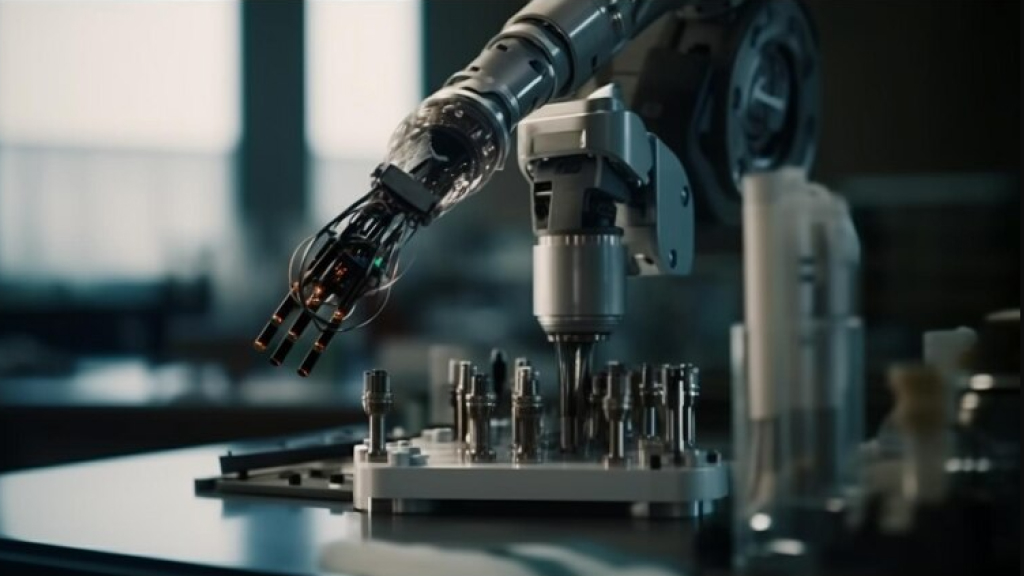
AI is no longer a futuristic concept; it is a transformative force redefining industries and reshaping the workforce. As AI technologies advance, they promise significant efficiencies and opportunities but also pose a substantial challenge to global employment.
AI’s ability to perform repetitive and data-intensive tasks has led to significant automation across various sectors. Manufacturing, logistics, and customer service are particularly affected, with AI systems replacing routine jobs such as assembly line work, inventory management, and call center operations. For instance, robots in warehouses can sort and package goods with precision, reducing the need for human intervention.
AI is also driving the demand for new roles that didn’t exist a decade ago, such as machine learning engineers, AI ethicists, and data analysts. These roles require advanced technical skills, including programming, data science, and an understanding of AI algorithms. Additionally, soft skills like problem-solving, adaptability, and creativity are becoming increasingly valuable as humans collaborate with AI systems to achieve innovative solutions.
As AI continues to evolve, the workforce will become more dynamic, inclusive, and technology-driven. Jobs of the future will likely emphasize creativity, strategic thinking, and emotional intelligence—areas where humans excel over machines. By embracing lifelong learning and adapting to change, workers can harness AI’s potential to create fulfilling and sustainable careers. While AI is reshaping the workforce, it also brings opportunities for growth and innovation. Preparing for this transformation is the key to thriving in the AI-powered future.
Which Industries Will Be Affected Most by AI?
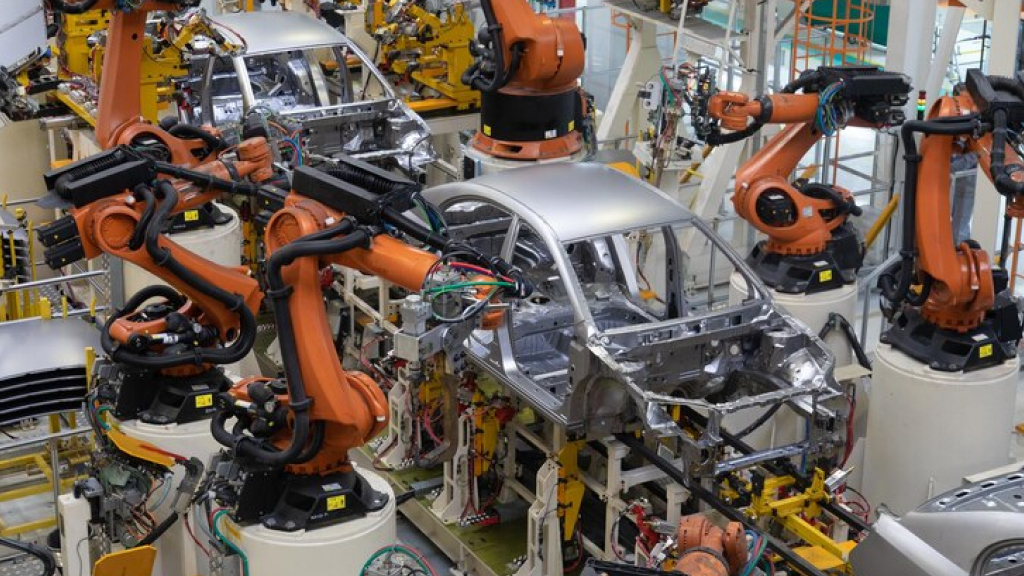
While AI brings opportunities for innovation, cost savings, and increased productivity, it also poses significant challenges to traditional job markets. Understanding which industries will be most affected by AI can help businesses, employees, and policymakers prepare for the future. Below are some sectors where AI is having the most significant impact:
1. Manufacturing
AI and robotics have been transforming manufacturing for decades, but the pace of change has accelerated. Robots equipped with AI are now capable of performing complex tasks such as welding, assembling, and quality control with minimal human intervention.
- Automotive Industry
Robotic arms are assembling vehicles with precision, reducing the need for human workers on production lines.
- Electronics
Automated systems are managing intricate tasks, such as soldering and component assembly.
2. Retail and E-commerce
The retail industry is embracing automation in various forms, including cashier-less stores, automated inventory management, and AI-driven customer personalization.
- Self-Checkout Systems
Retailers like Walmart and grocery chains are adopting self-service kiosks to replace human cashiers.
- Warehousing and Logistics
Companies like Amazon and Alibaba use AI-powered robots to sort, pack, and ship orders efficiently.
3. Transportation and Logistics
The development of autonomous vehicles and AI-powered logistics is fundamentally changing the transportation sector.
- Self-Driving Trucks
Companies like Tesla and Waymo are testing autonomous trucks, which could replace long-haul drivers.
- AI-Powered Fleet Management
Logistics firms use AI to optimize routes, reducing fuel costs and delivery times.
4. Finance and Banking
AI is automating many processes in the finance sector, from trading to customer service.
- Robo-Advisors
AI-driven platforms like Betterment and Wealthfront provide investment advice and portfolio management at a fraction of the cost of human advisors.
- Fraud Detection
AI algorithms analyze vast datasets to identify fraudulent transactions in real time.
5. Healthcare
While healthcare is less susceptible to full automation, AI is augmenting tasks traditionally performed by medical professionals.
- Diagnostics
AI tools like IBM Watson Health assist in diagnosing diseases with higher accuracy than traditional methods.
- Surgical Assistance
Robotic systems are performing minimally invasive surgeries under human supervision.
6. Customer Service
Customer service is one of the sectors most visibly impacted by AI. Companies increasingly rely on chatbots and virtual assistants to interact with customers.
- Chatbots
AI tools like ChatGPT handle queries, provide recommendations, and resolve complaints without human intervention.
- Voice Assistants
AI systems like Amazon Alexa and Google Assistant are enhancing customer support capabilities.
How Workers Can Prepare for the Changing Landscape?

AI is revolutionizing industries, transforming workflows, and reshaping the job market. For workers, adapting to this changing landscape is crucial. Here’s how they can prepare.
1. Upskill and Reskill for Future-Ready Roles
Continuous learning is essential to stay competitive in an AI-driven world. Workers should focus on acquiring skills in high-demand areas such as:
- Data Analysis and Machine Learning
Roles like data scientists, machine learning engineers, and AI specialists are in high demand as organizations integrate AI into their operations.
- Digital Literacy
Understanding digital tools, platforms, and coding basics is increasingly important across industries.
- Human-Centric Skills
Creativity, empathy, critical thinking, and leadership are traits that AI cannot replicate and remain vital in fields like healthcare, education, and counseling.
Online courses, certifications, and boot camps from platforms like Coursera, Udemy, and LinkedIn Learning provide accessible avenues for upskilling.
2. Embrace Lifelong Learning
In a rapidly evolving job market, learning must become a lifelong habit. Workers should stay informed about industry trends, new technologies, and emerging job opportunities. This proactive approach ensures that their skills remain relevant as industries transform.
3. Explore Careers in Emerging Fields
The AI revolution is creating entirely new job categories that didn’t exist a decade ago. Fields like AI ethics, cybersecurity, renewable energy systems, and virtual reality are gaining momentum. Transitioning into these areas can future-proof careers and open doors to innovative and exciting opportunities.
4. Collaborate with AI, Don’t Compete
Rather than seeing AI as a threat, workers should view it as a tool to enhance their productivity. Human-AI collaboration is becoming the norm, where workers use AI tools to make data-driven decisions, improve workflows, and deliver better outcomes. Learning how to work alongside AI systems will be a critical skill in the modern workforce.
5. Seek Support from Employers and Governments
Businesses and governments play a crucial role in preparing workers for AI-driven change. Employers can offer reskilling programs, training workshops, and opportunities for internal mobility. Governments must invest in education and workforce development initiatives to mitigate the societal impacts of AI-driven job displacement.
New Roles and Industries Emerging from Automation

The AI era is not just about replacing jobs, it’s about redefining them. For those willing to adapt, the future offers immense potential for growth, innovation, and economic prosperity. AI is driving demand for professionals who can design, manage, and collaborate with intelligent systems. Here are some of the most prominent roles gaining traction:
1. AI Specialists and Machine Learning Engineers
At the heart of the AI revolution are machine learning engineers and AI specialists. These professionals develop and optimize algorithms, create predictive models, and enhance the functionality of AI systems. As businesses across industries adopt AI, the need for skilled experts continues to grow.
2. Data Scientists and Analysts
Data is the foundation of AI. Data scientists analyze massive datasets, identify patterns, and create actionable insights. This role is crucial in sectors like healthcare, finance, and marketing, where data-driven decisions drive success.
3. AI Trainers and Ethical Specialists
AI systems must be trained and monitored to ensure they function as intended. AI trainers help these systems understand human language and behavior, while ethical specialists ensure AI operates within moral and legal boundaries, addressing issues like bias and transparency.
4. Cybersecurity Experts
As AI becomes integral to business operations, protecting systems from cyber threats is paramount. Cybersecurity experts specializing in AI-driven defenses are in high demand, securing sensitive data and infrastructure.
Industries Flourishing in the AI Era

Here’s a look at some sectors thriving thanks to automation and AI advancements:
1. Renewable Energy
AI is optimizing energy production, distribution, and consumption in the renewable energy sector. Smart grids powered by AI enhance efficiency, while predictive analytics streamline maintenance for solar and wind farms.
2. Biotechnology and Healthcare
AI is revolutionizing drug discovery, patient diagnostics, and personalized medicine. Startups and established firms are leveraging AI to develop treatments faster and more accurately, opening new opportunities in biotech.
3. Autonomous Systems and Robotics
The development of autonomous vehicles, drones, and robotic systems is creating roles in design, maintenance, and logistics. These technologies are transforming transportation, delivery, and manufacturing.
4. Creative and Digital Industries
AI tools are enhancing creativity in content creation, gaming, and design. From AI-generated art to personalized marketing campaigns, opportunities abound for those who can harness AI’s potential in creative domains.
How AI Is Creating Wealth and Entrepreneurial Opportunities

AI is not just revolutionizing industries; it’s also creating unparalleled opportunities for wealth generation and entrepreneurship. From automating mundane tasks to enabling groundbreaking innovations, AI is empowering individuals and businesses to tap into new markets, increase efficiency, and build scalable enterprises. For those who can harness its potential, AI is a gateway to unprecedented economic growth.
-
Automation and Efficiency
AI reduces operational costs by automating repetitive tasks, allowing businesses to allocate resources more effectively. Entrepreneurs can use AI-driven tools to streamline processes such as customer service, inventory management, and marketing. This efficiency translates into higher profit margins and scalable growth.
-
Data Monetization
Data is a vital asset in today’s data-driven environment. AI helps businesses collect, analyze, and monetize data, uncovering insights that drive strategic decisions. Startups leveraging AI for data analysis have created lucrative niches in industries like finance, healthcare, and retail.
-
Personalization at Scale
AI enables businesses to offer personalized experiences to millions of customers simultaneously. For instance, e-commerce platforms use AI to recommend products based on user behavior, boosting sales and customer loyalty. Entrepreneurs in digital marketing, e-commerce, and app development are capitalizing on this capability to scale their ventures.
-
Democratizing Access to Tools
AI-powered platforms and tools have made sophisticated technology accessible to entrepreneurs with limited resources. For example, AI-based design tools like Canva and copywriting assistants like Jasper allow small business owners to create professional-quality content without hiring experts.
-
Enabling Innovation
AI’s versatility inspires entrepreneurs to create solutions that were once unimaginable. From AI-driven health diagnostics to predictive analytics in real estate, startups are disrupting traditional industries and unlocking new markets.
-
Reducing Startup Costs
Starting a business often requires significant capital for operations, marketing, and customer acquisition. AI reduces these costs by automating tasks like lead generation, customer support, and supply chain management. Entrepreneurs can now launch and scale businesses with fewer resources, increasing profitability.
Ethical Considerations
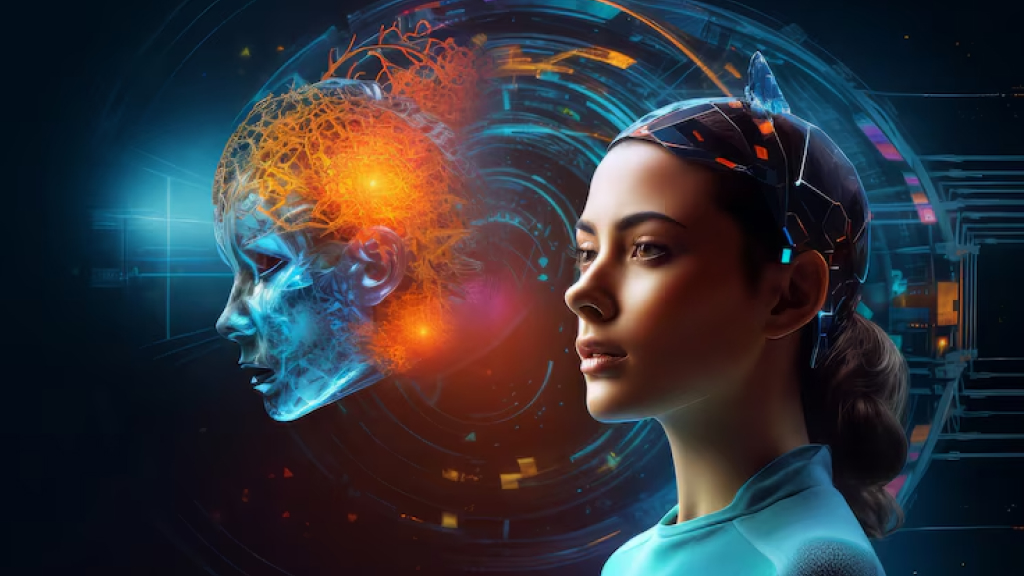
As AI continues to evolve, it brings significant potential for innovation and progress across various sectors. However, the rapid development of AI raises critical ethical concerns, particularly around its accessibility and fairness. One of the key issues is ensuring that AI benefits society as a whole, rather than exacerbating existing inequalities or disproportionately benefiting the wealthy.
AI systems are often developed and deployed by large corporations, which raises the risk of concentrating AI’s benefits in the hands of a few powerful entities. This could widen the wealth gap, with AI innovations being used primarily to increase profits for large companies while leaving marginalized communities with little access to its advantages.
To address these concerns, it’s essential to integrate ethical principles into the development and deployment of AI. This includes promoting transparency in AI decision-making, ensuring algorithms are free from bias, and advocating for equitable access to AI tools. Governments, regulators, and tech companies must work together to establish guidelines and frameworks that prioritize fairness, accountability, and inclusivity.
As AI continues to evolve, it’s essential for society to focus on ensuring equitable access to its benefits. By fostering inclusive education, investing in workforce training, and encouraging ethical AI practices, we can build a future where AI benefits everyone, not just the few. Embracing AI’s potential while preparing for its disruptions can help individuals and businesses not only survive but thrive in the AI-powered world.





